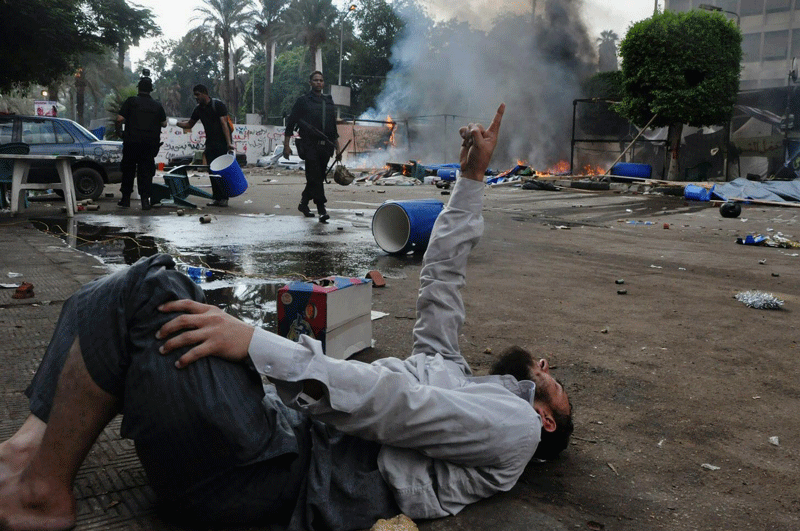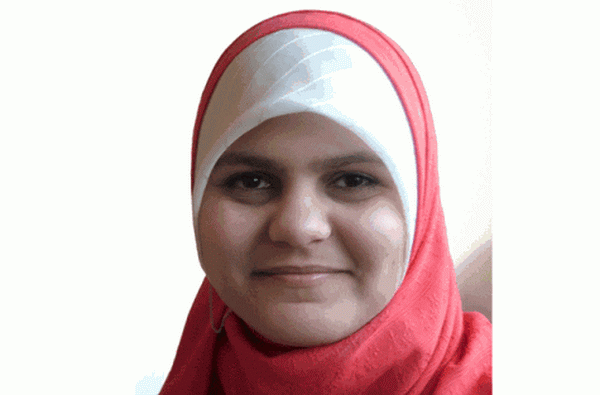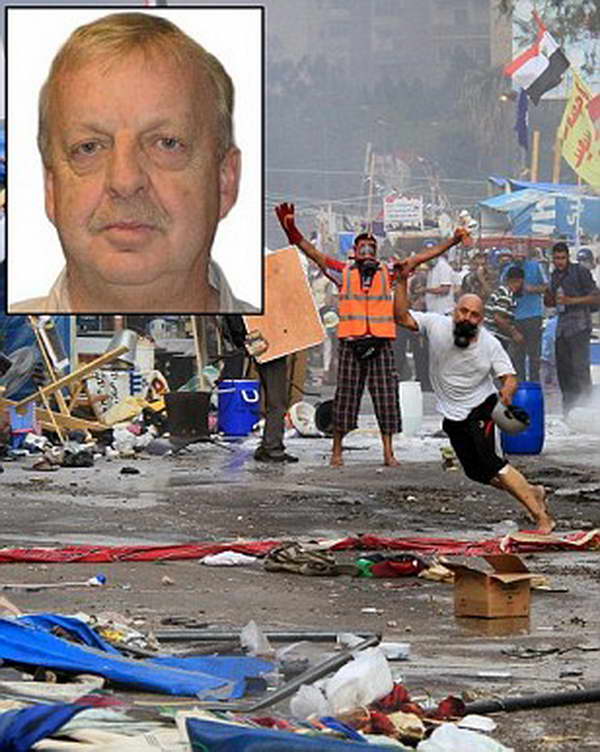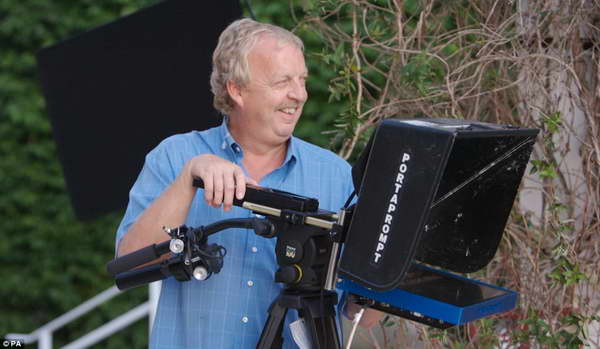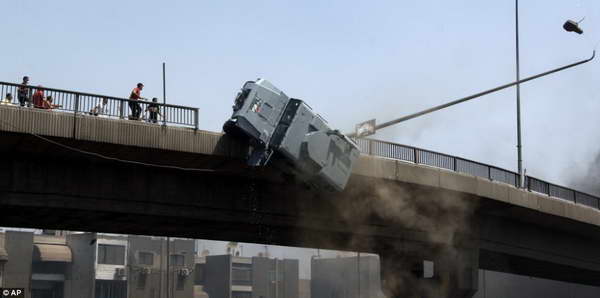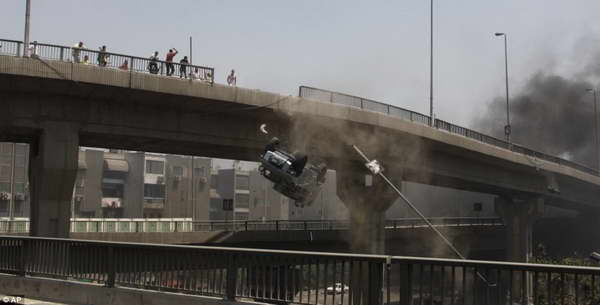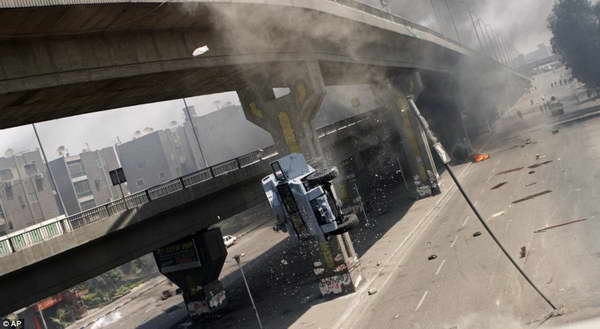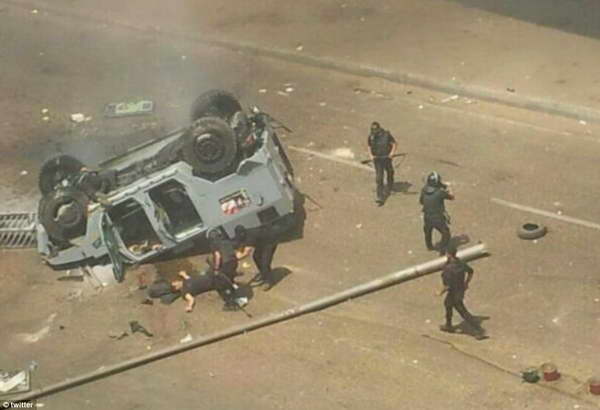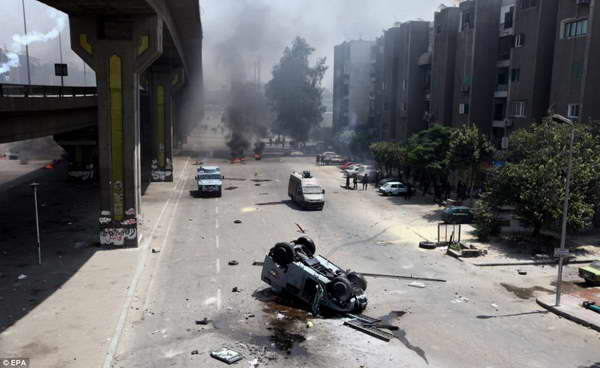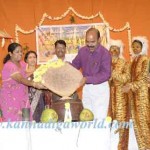Authorities blame Islamists for provoking violence; Sky News cameraman killed
Security forces Wednesday stormed two huge Cairo protest camps occupied for weeks by supporters of Egypt’s ousted president Mohamed Morsi, leaving at least 124 people dead in a crackdown that turned into a bloodbath.
The government imposed a state of emergency, starting at 1400 GMT on Wednesday, which was to last a month.
The government on Wednesday declared a curfew in Cairo and 10 other provinces in a bid to contain nationwide violence.The curfew was to begin at 7:00 pm (1700 GMT), before sunset, and run until 6:00 am (0400 GMT), a government spokesman said in a statement read out on state television.
It applies to the provinces of Cairo, Giza, Alexandria, Beni Sueif, Menya, Assiut, Sohag, Beheira, North Sinai, South Sinai and Suez.
As clashes raged in the capital, three churches were attacked in central Egypt, with Christian activists accusing Morsi loyalists of waging “a war of retaliation against Copts in Egypt”.
Hours after the first tear gas canisters rained down on tents of protesters in the sprawling Rabaa Al Adawiya camp in east Cairo, an AFP correspondent counted at least 124 bodies in makeshift morgues.
In a field hospital, its floors slippery with blood, doctors struggled to cope with the casualties, leaving the hopeless cases, even if still alive.
The Muslim Brotherhood, from which Morsi emerged, said that 2,200 people had been killed and over 10,000 injured as authorities confirmed 56 deaths in Wednesday’s violence.
Security officials had spoken of a gradual dispersal of the sit-ins over several days but the dramatic descent on the squares shortly after dawn came as a surprise to many.
Al Azhar, Sunni Islam’s main seat of learning, which sided with the military in its overthrow of Morsi on July 3, distanced itself from the crackdown.
“Al-Azhar stresses to all Egyptians that it did not know about the methods used for the dispersal of the protests except through media channels,” Grand Imam Ahmed Al Tayyeb said in a televised statement.
Witnesses and an AFP correspondent said after firing tear gas security forces surged into Rabaa Al Adawiya, sparking pandemonium among the thousands of protesters who had set up the camp soon after Morsi was ousted.
Men in gas masks rushed to grab each canister and dunk them in containers of water, as the main stage near the mosque of the camp blared Islamic anthems and protesters chanted “Allahu Akbar” (God is greatest.)
Clashes quickly erupted between protesters and security forces on the outskirts of the camp, with automatic fire reverberating across the square.
Protest leaders wearing gas masks stood defiantly on a stage while crowds of people wearing face masks stood amid the swirling tear gas as bulldozers began dismantling the camp.
In the smaller of the protest camps at Al-Nahda square in central Cairo, police said they took control of the square after two hours.
Television footage showed flattened tents, as women and children flanked by police and army troops were led out of the square.
Dozens rounded up in the dispersal were shown sitting on the ground, handcuffed and surrounded by security forces.
The violence came amid international appeals for calm.
Berlin called on all sides to renounce violence and return to negotiations and Britain, Iran and Qatar condemned the use of force by Egyptian police.
It was a dramatic turn of events for the Muslim Brotherhood, who just over a year ago celebrated Morsi’s win as Egypt’s first elected president.
But his turbulent year in power, marred by political turmoil, deadly clashes and a crippling economic crisis, turned many against the Islamist movement.
On June 30, millions took to the streets to call on the army to remove Morsi.
Morsi’s Muslim Brotherhood urged Egyptians to take to the streets in their thousands to denounce the “massacre”.
“This is not an attempt to disperse, but a bloody attempt to crush all voices of opposition to the military coup,” Brotherhood spokesman Gehad Al Haddad said on Twitter.
The Rabaa Al Adawiya protest camp, where several Brotherhood leaders had been staying, “is calling on Egyptians to take to the streets to stop the massacre,” Haddad said.
But the anger against the Islamist movement was evident Wednesday as residents of several neighbourhoods clashed with Morsi loyalists.
In Cairo, supporters of the deposed president blocked several roads in the central Mohandesseen neighbourhood, and were working to set up a new protest camp there, witnesses said.
Police were deployed in the area where tear gas was fired and gunshots heard.
Clashes also erupted between security forces and Morsi loyalists in the northern provinces of Alexandria and Beheira, the canal provinces of Suez and Ismailiya and the central provinces of Assiut and Menya.
In Menya, witnesses said the Saint Ibram and Virgin Mary church and the Saint Mina church were torched.
Assailants also threw firebombs at Mar Gergiss church in Sohag, a city with a large community of Coptic Christians who comprise up to 10 percent of Egypt’s 84 million people, causing it to burn down, the agency said.
Coptic Pope Tawadros II, together with Al-Azhar’s Tayyeb, had supported the military and sat by army chief Abdel Fattah Al Sisi when he announced that Morsi had been deposed and laid out a new political roadmap for the country.
As authorities struggled to contain the unrest in the country, Egypt’s railway authorities announced that all trains had been grounded to prevent protesters from moving outside of Cairo and reassembling.
Sky News cameraman, Dubai newspaper reporter, killed
A cameraman for British broadcaster Sky News and a Dubai-based newspaper reporter were killed during violence in Egypt on Wednesday, their employers said.
Sky said Mick Deane, 61, was shot and wounded while covering the violent breakup of protest camps in the capital, Cairo. It said he was treated for his injuries but died soon after. The rest of the Sky crew was unhurt.
Gulf News reported on its website that journalist Habiba Ahmed Abd Elaziz, 26, was shot dead near the Rabaah Al Adawiya mosque in Cairo.
The newspaper said she had been on annual leave and was not on assignment at the protest for the XPRESS, a sister publication that she worked for.
Sky said Deane had worked for the broadcaster for 15 years in the United States and the Middle East. He was married with two sons.
Sky news chief John Ryley said Deane was “the very best of cameramen, a brilliant journalist and an inspiring mentor to many at Sky.”
British Prime Minister David Cameron said he was “saddened to hear of the death” and said his thoughts were with Deane’s family and colleagues.
Gulf News said it spoke to the UAE journalist’s younger sister Arwa Ramadan, who confirmed her death.
“My mom spoke to her close to (early morning prayers), but when she called again at 12 noon, there was no response,” the sister said. “She called again, and somebody picked up the phone and told her Habiba was dead. My dad, who is in Egypt right now, confirmed it later.”
Gulf News quoted deputy editor Mazhar Farooqui as saying the publication was in shock.
“It’s hard to believe she’s gone,” Farooqui said. “She was passionate about her work and had a promising career ahead.”

